Class on the coast: Students explore Spanish culture and practices in Almería
March 28, 2024
Class looked a little different recently for 16 Occupational Therapist Assistant and Physiotherapist Assistant students. Instead of their usual walk or drive to Georgian’s Barrie Campus, they boarded a plane with their passports and suitcases to study abroad at Universidad de Almería in Almería, Spain.
Thanks to an opening from The Global Skills Opportunity (GSO) program, students travelled overseas and received 40 hours of combined classroom and practical experience focusing on physiotherapy modalities, research and health care system knowledge outside of the Canadian context. During their downtime, they were also able to learn about Spanish culture and explore the city.
Over two weeks, students worked with Universidad de Almería faculty, used new equipment and technology, and learned hands-on techniques unique to Spanish practices. They also spent two days in a community placement where they observed the daily care of patients in three different live settings.
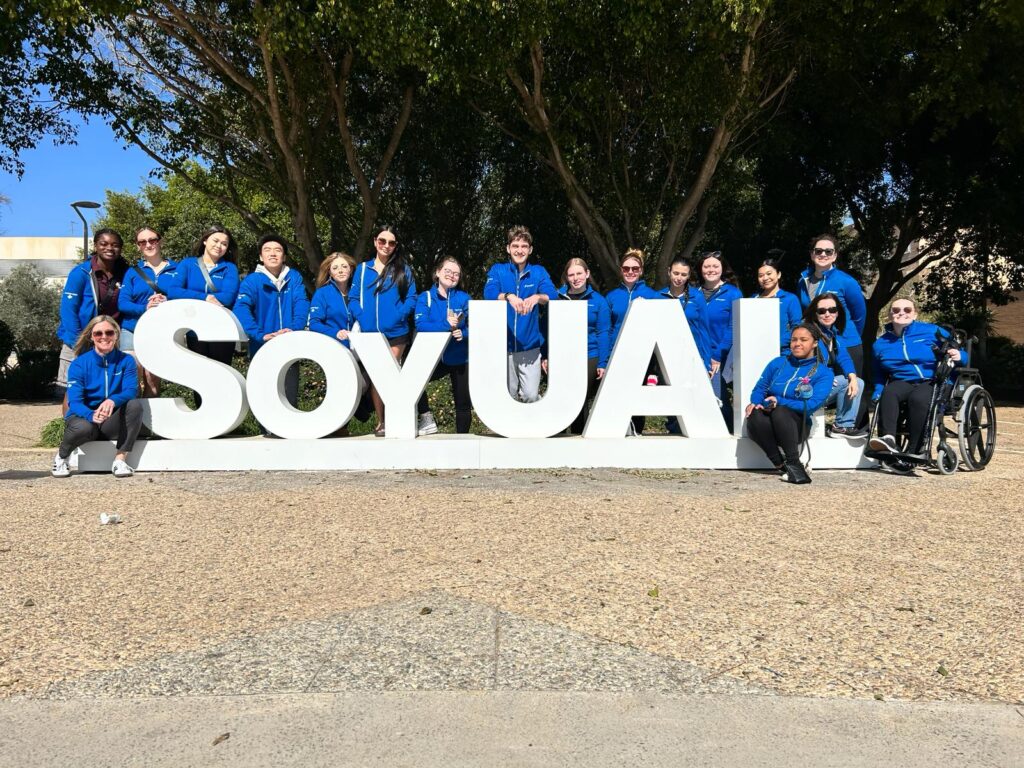
Watching our students truly immerse themselves in the experience was amazing – it became a learning environment for faculty too! Some had never travelled outside Canada before, and everyone adapted well to learning a new language and practices. They grew as people and professionals, challenged resiliency and embraced collaboration.
– Celia Mirco, Occupational Therapist Assistant and Physiotherapist Assistant professor
We spoke with three students who attended the trip, Caressa Brown, Sarah Nelson, and Wesley Wang, to learn more about their experiences.
Why did you decide to pursue the Occupational Therapist Assistant and Physiotherapist Assistant program at Georgian?
Caressa: I was in and out of the hospital my entire childhood and worked with a lot of OT’s and PT’s. My life wasn’t always easy to cope with, but seeing the PT’s and OT’s helped me adapt to some of the challenges I faced and seeing them was the highlight of my week. I knew that if they could make me, a small, scared kid feel safe and happy that I could do that for other people.
Wesley: I decided to pursue this program because I wanted to further my education in rehabilitation and help others in the future using the skills and knowledge I’ve learned.
Sarah: I enrolled in the OTA and PTA program at Georgian because I’ve always enjoyed anatomy and wanted to pursue a career in a helping profession that didn’t involve being directly responsible for saving someone’s life. I’m also very passionate about this field of study due to my own experiences growing up attending physio and occupational therapy.
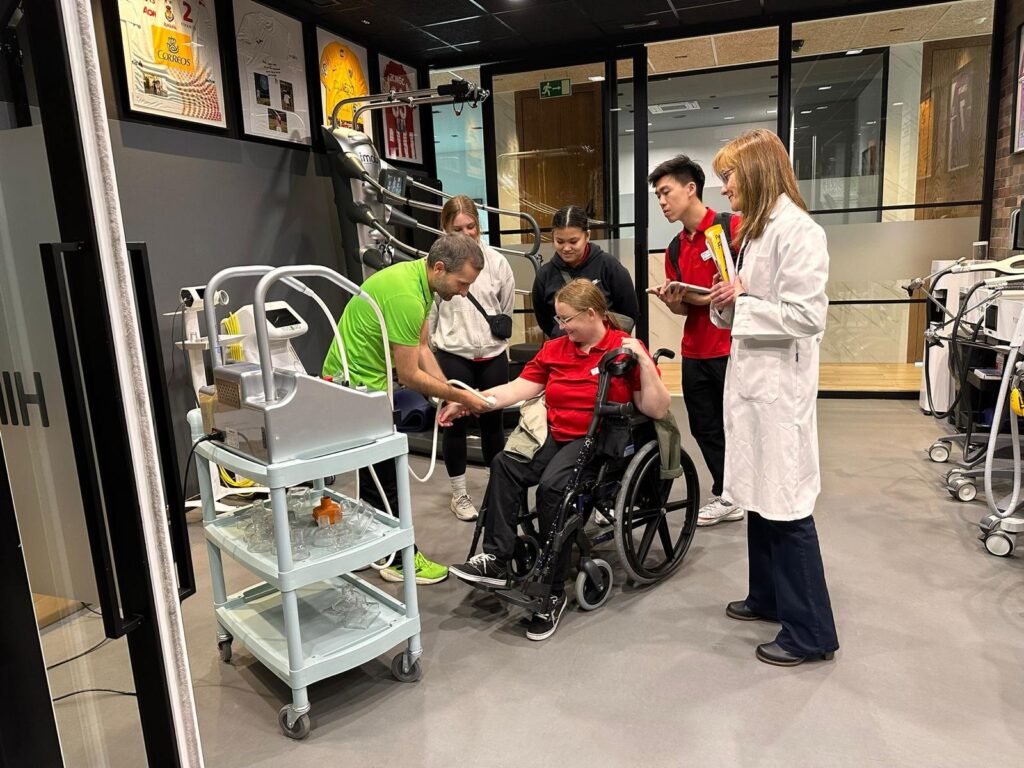
Why did you apply for this trip to Spain?
Wesley: As a low-income student, I don’t really get to travel much. I thought that applying to this trip would give me an opportunity of a lifetime to see the world outside of Canada. This trip allowed me to immerse myself in a new culture, interact with people who speak a different language and navigate through an unfamiliar place. I was very grateful to be selected for this experience.
At first, I was scared and didn’t think I wanted to leave my family and go that far, but I knew that I’d never be able to have this opportunity again and I’ve always been fascinated with different cultures. As someone who is mixed race and never knew much about my own culture, I made it a goal to learn more about other cultures as well as my own, and I thought what better way to start doing that than going to a different country.
Caressa Brown, Occupational Therapist Assistant and Physiotherapist Assistant student
Sarah: I applied for this trip because I knew it would be an incredible opportunity and valuable in preparing me to become a skilled OTA and PTA. I’m an introvert and a homebody who likes routine, so this trip would be out of my comfort zone. However, I realized to grow as a clinician, I needed to put myself into a position that was slightly uncomfortable. This meant seeking more learning opportunities than what I could gain inside a classroom or by reading a textbook. And what better time to take that leap into the unknown, than with the peers who have worked and learned tirelessly alongside me these last years!
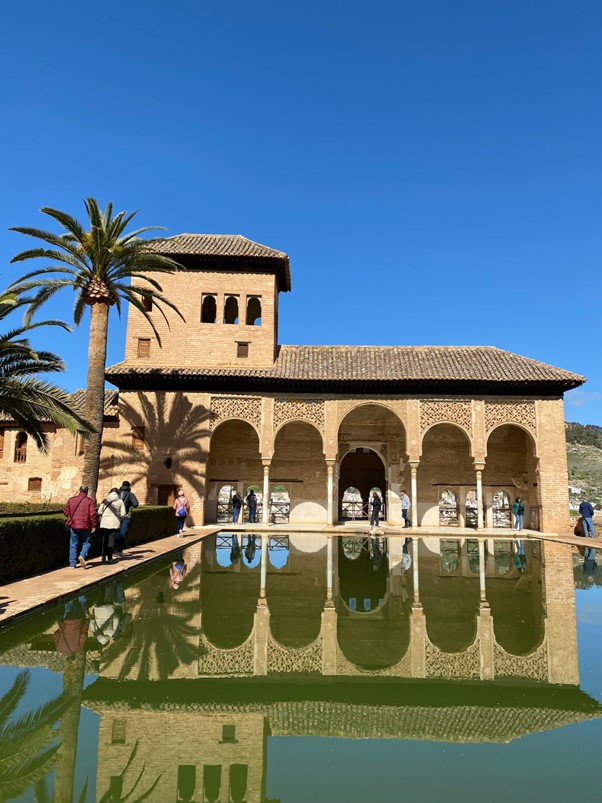
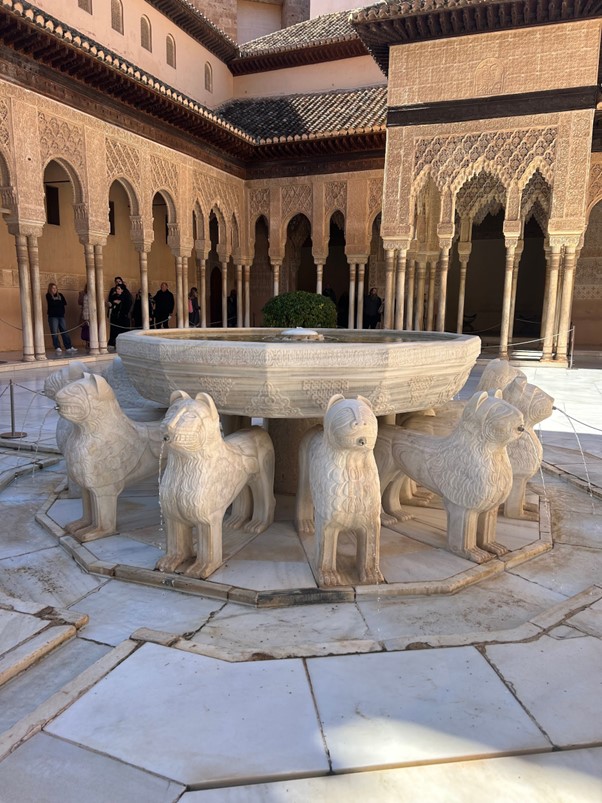
Did you learn anything new about their practices in Spain, and how will you apply that to your learning here and in your future careers?
Caressa: I learned that even if you’re not comfortable with change and trying new things, that everything will work out the way it should. Let yourself take the opportunity and embrace everything life has to offer. I also learned that there’s so much more out there in the world and that each person is unique. I think this will help me provide an individualized approach for each future client I treat.
Wesley: During the trip I gained so much knowledge on their practices. They taught us the concept of kinesiotaping which limits certain movements to prevent injury while also having the ability to be functional. As a student who’s interested in working in sports rehabilitation, this will be very useful in the future. We were also taught about anatomy and different injuries associated with certain muscles and joints, specifically the shoulder, which was helpful for me as a volleyball player.
I also found that language was a huge barrier for getting necessities. I’ve learned to use non-verbal communication as an alternative way to get the things I needed; I learned to be more patient, flexible, adaptive and understanding. Looking back and putting myself in someone else’s shoes here in Canada, I now understand how hard it is to not be able to communicate with others.
This experience helped increase my resiliency, adaptability and critical thinking. The people there truly value human connection and don’t put a time limit on interactions. Spanish culture runs at a much slower and more relaxed pace than what I’m used to— locals find it weird when you ask for your coffee to-go. I feel this allows the opportunity for deeper connections and more genuine relationships and I hope to apply this concept to my life and career in Canada.
– Sarah Nelson, Occupational Therapist Assistant and Physiotherapist Assistant student
Travelling to Spain and being immersed in the distinct culture, provided me insight into local values and ways of life, broadening my own perspectives and giving me a deeper appreciation for diversity and authentic human connection. I could tell how much the professionals we met cared about their patients and incorporated client-centred practice through a well-rounded, individualized and interdisciplinary approach.
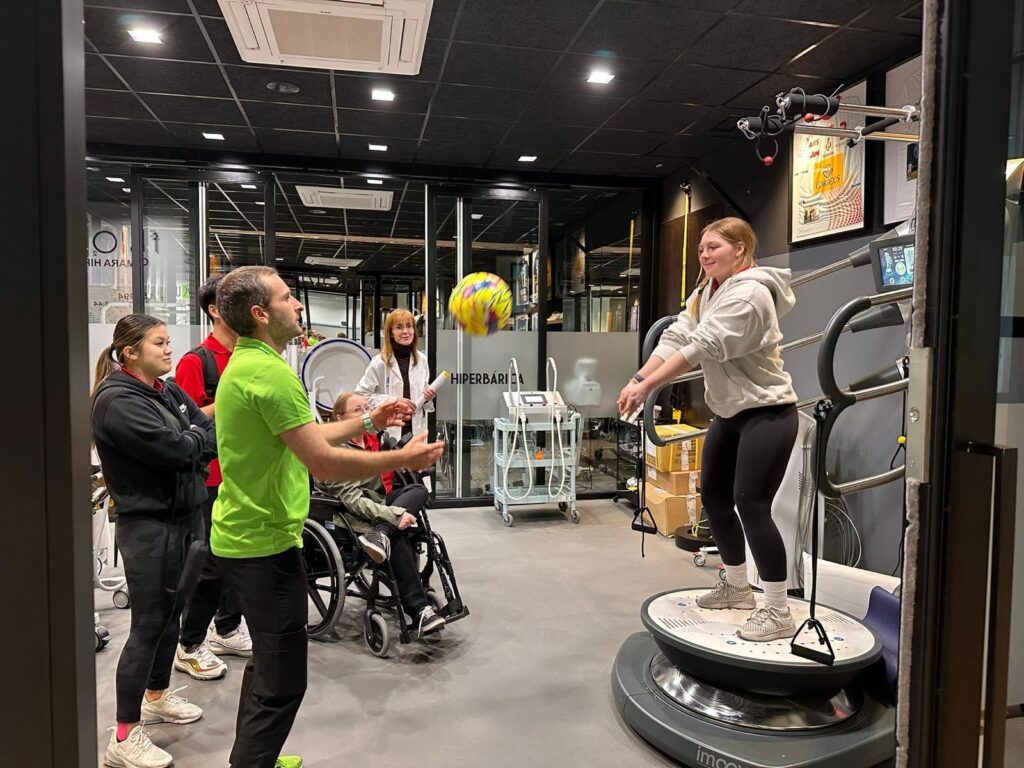
What was the most memorable part of the experience, and would you recommend international study opportunities to other students?
Caressa: The most memorable part of the experience was making connections with people across the world, learning the way they live their lives, seeing their schooling differences and their history/architecture. I’d absolutely recommend international/study abroad opportunities because not only do you learn more about other people, but you learn a lot about yourself and your capabilities. It’s also super relaxing and fun to be with people you may have not known before.
Wesley: The most memorable part of the experience was being able to learn and explore the many wonders of Spain with my classmates and the amazing people I’ve met along the way. One of my favourite parts of the trip was visiting different health care sites such as a hospital, physiotherapy clinic and a non-profit organization for people with disabilities. We had the opportunity to observe compression bandaging and toured different rooms including Occupational Therapy, Pediatrics, Neurotrauma and more. We also explored the range of technology they use for treatment including electrotherapy, shockwave therapy and neurostimulation. I found that being exposed to many different treatment techniques and technology that were new to me and uncommon in Canada was astonishing.
I would definitely recommend international study abroad programs to other students because it really opens your mind to a different way of thinking. Putting yourself out there and being open to trying new things allows you to be more culturally aware and understanding of others. It allows you to experience what life is like beyond what you already know and challenges you in every aspect.
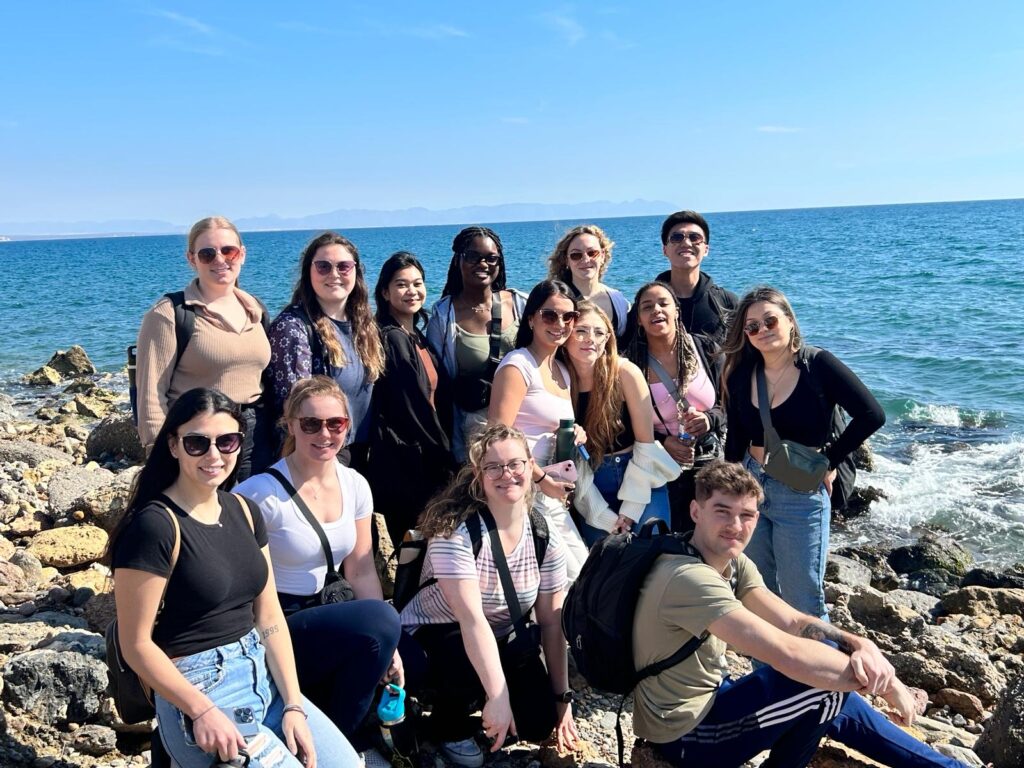
Sarah: For me, the most memorable part of the trip was having the opportunity to really get to know and connect with my teachers and peers on a deeper level than would be possible during the few hours of classes we share each week. I had the opportunity to interact with people I have never hung out with outside of class and now we have this incredibly unique bond because of our shared experience. The people we met along this journey welcomed us with open arms, sharing their city, customs and culture while also being open to learning about ours. The people made this experience what it was, and I’ll forever be grateful to have spent those two weeks on the adventure of a lifetime!
No matter what stage of training or career development you’re at, it’s always beneficial to learn from others who can share alternative viewpoints and ideas. One of the best ways to mature professionally and personally is by collaborating with others who may have different opinions from your own. Travelling abroad as a student is the perfect opportunity to learn all you can while immersing yourself in a multitude of different cultures. It’s incredibly freeing to realize how much more there is to life than the small area on this Earth you call home.
A thank you goes out to everyone who made this trip possible, including the wonderful faculty from Universidad de Almería (Adelaida Castro, Manuel Fernández, Héctor García, Inmaculada Lara, Nuria Sánchez, and Maica Martínez).